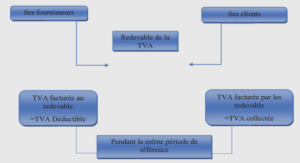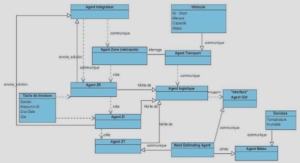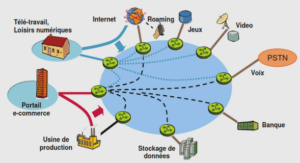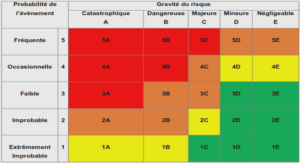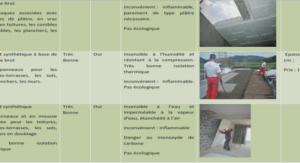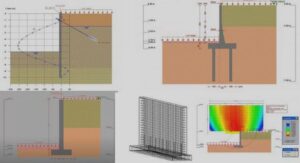VARIATIONS ETHIQUES AUTOUR DU SENSEMAKING
Le cas d’un service d’oncopédiatrie du CHU de Bordeaux
Ce cas n°1 a donné lieu à la publication d’un article : A Sensemaking approach to a discursive ethical skill in healthcare management: the case of an oncopaediatric service. Cet article a été publié dans la revue : International Journal Services and Standards, Vol.10, N0s 1/2, 2015. Il a également fait l’objet d’une communication en français lors du 9e congrès organisé par le Réseau International de Recherche sur les Organisations et le Développement Durable (RIODD) en octobre 2014, sous l’intitulé : création de sens et compétence éthique et discursive : le cas d’un service d’onco-pédiatrie.
Discursive ethical skill: a conceptual framework
First, the use of Sensemaking theory in management science is an interesting object of study and exploration. Another variation of Sensemaking: The discourse ethics by Habermas, needs to be addressed when dealing with healthcare management. 3.1 Sensemaking and management science Today, Sensemaking theory is one of the most famous frameworks in organisation and management theories (Oswick et al., 2011). It draws from sociopsychological constructs in organisational behaviour and psychology and has been developed by Weick. This author is strongly inspired by phenomenology, ethnomethodology, symbolic interactionism and dissonance theory. In ‘Sensemaking in Organization’ (1995), he presents his main key references (pp.65–69). Weick’s research is really captivating because it has the capacity to stimulate interest, produce a higher degree of learning and bring new ideas and methodology (Bartunek et al., 2006). ~Chapitre 4 ~ 118 Weick favours new and problematic situations and is interested in small actions in organising. His research topics are the following: Unusual events, taking into account the level of analysis, the role of language, the use of metaphors, the introduction of context, as well as critical knowledge and counter-intuitive explanations (Autissier and Bensebaa, 2006). According to Vidaillet, formulating a situation as a problem or largely an opportunity, a dilemma, a paradox, a conflict or a preoccupation, leads to elaborate meaning (Vidaillet, 2003). The variety of Weick’s research highlights the diversity needed to treat the equivocity of multiple realities (Autissier and Bensebaa, 2006). The Ashby’s law of requisite variety inspired Weick. Asking as many questions as possible and exploring more ways of thinking, gives meaning to equivocity. Weick conveys the idea that it is the only way to approach the understanding of organisational phenomena: Understanding is Sensemaking (Weick, 1995). Also, Weick advocates an organisation science, rich in the multiplicity of meaning, needed by complex phenomenological situations.
The nature of Sensemaking
Weick explains what Sensemaking means for organisations and his perspective can be summarised as follows: (a) First, it is an individual and a social activity; (b) Second, it concerns the past, present and future; (c) Finally, it is primarily an issue of language, conversation and communication (Weick et al., 2005). The question that people interested in Sensemaking try to answer is the following: “How do people construct what they construct, why and with what effects?” (Weick, 1995, p.5) In order to answer this question, one notices Sensemaking is grounded in both individual and social activity (Weick, 1995). Thus, Sensemaking is about thinking and acting both individually and socially. Sensemaking can be seen as a private singular activity and may be defined as “a process in which individuals develop cognitive maps of their environment” (Ring and Rands, 1989, as quoted by Weick, 1995, p.6). But it can also be seen as a social activity, necessary “for organisational members to understand and to share understandings about such features or the organisation as what it is about, what it does well and poorly, what the problems it faces are and how it should resolve them” (Feldman, 1989 as quoted by Weick, 1995). The same activity may reflect, at once, Sensemaking and understanding processes. ~Chapitre 4 ~ 119 However, Sensemaking is more than an activity of interpretation. It’s about authoring as well as reading. “People render an outcome sensible by constructing a plausible story that produced it” (Weick, 1995, p.7). It is not a metaphor for an interpretative point of view in organisational studies. Actually, “Sensemaking is to be understood literally and not metaphorically” (p.16). Sensemaking is based on the following three elements: (a) A frame; (b) a cue and lastly (c) a connection. In other words, it is a combination of a past moment + a connection + and a present moment of experience which lead one to define the present situation. Sensemaking is embodied in frames encapsulated in the following statement: “Frames tend to be past moments of socialisation and cues tend to be present moments of experience. If a person can construct a relation between these two moments, meaning is created” (Weick, 1995, p. 16). Furthermore, Sensemaking is about argumentation and expectation driven by beliefs, which vary among people. Sometimes, the connections involved are relations of contradiction; other times the connections involved are relations of confirmation. Discussing Sensemaking is to talk about reality as an ongoing accomplishment, which takes shape when people make a retrospective sense of the situations in which they find themselves and their creations (Weick, 1995). Besides, Weick grants great importance to communication, verbalisation and stories (Weick et al., 2005). In this perspective, Sensemaking occurs when a flow of organisational circumstances is turned into words and salient categories. “Sense is generated by words that are combined into sentences of conversation to convey something about our ongoing experience” (p.19). Individuals select words from several different vocabularies or frames and make sense with these, reminding everyone that the society precedes the mind (Mead, 1956). Furthermore, experience does not yield data; but the concept of the language used to interpret experience does (Freese, 1980 as cited by Weick, 1995). Organisation’s action is embodied in written and spoken texts. Therefore, reading, writing, conversing and editing are crucial actions serving as the media through which the invisible hand of institutions shapes conduct. The requirements necessary to author a good story are germane to what is required for Sensemaking.

